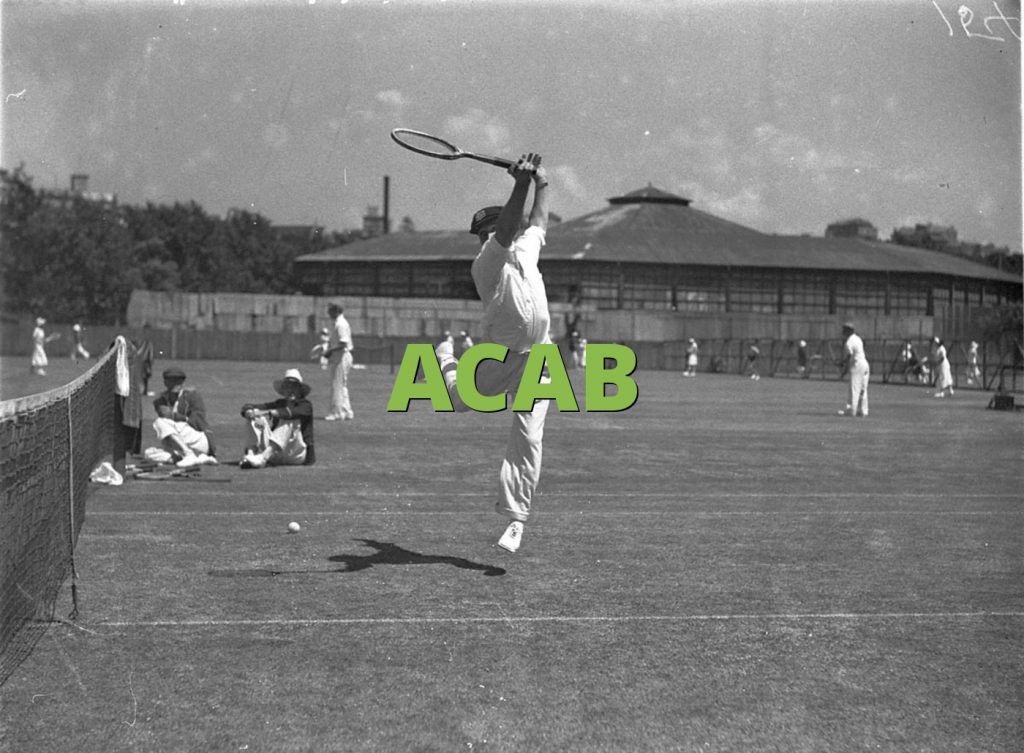Ever heard the term "ACAB" and wondered what it actually means? If you're scratching your head or doing a quick Google search, you're not alone. ACAB has become a buzzword in recent years, popping up in protests, songs, and even social media captions. But what exactly does ACAB stand for? Why does it carry so much weight? Let’s break it down for you.
ACAB is an acronym that has roots in activism and social justice movements. It’s more than just a catchy phrase; it represents a powerful sentiment that resonates with many people around the world. In this article, we’ll explore the meaning of ACAB, its origins, and why it’s such a polarizing term.
Before we dive into the nitty-gritty, let’s set the stage. ACAB isn’t just a word—it’s a statement. It’s a rallying cry for those who feel marginalized, oppressed, or unheard. But like any controversial term, it also comes with its fair share of criticism and debate. So, buckle up because we’re about to unpack everything you need to know about ACAB.
Read also:Melissa Oneil The Rising Star Whorsquos Taking The Entertainment World By Storm
What Exactly Does ACAB Mean?
ACAB stands for "All Cops Are Bastards." Yep, you read that right. It’s a phrase that originated in the UK during the 1970s and has since gained global traction. The term is often used by activists, protesters, and individuals who believe that law enforcement systems are inherently corrupt and unjust.
Now, before you roll your eyes or start forming an opinion, let’s take a step back and understand the context. ACAB isn’t just a blanket statement; it’s a reflection of systemic issues within the justice system. For many, it’s a way to highlight the abuse of power, racial profiling, and other forms of discrimination that they believe are perpetuated by police forces.
Origins of ACAB: A Brief History
The roots of ACAB can be traced back to the punk rock scene in the UK during the 1970s. Bands like The 4-Skins popularized the phrase in their music, using it as a form of protest against police brutality and government oppression. At the time, the UK was dealing with significant social unrest, and the phrase became a symbol of resistance.
Over the years, ACAB spread beyond music and into broader social movements. It gained momentum during the 1980s and 1990s, particularly in anti-globalization protests and labor strikes. By the 2010s, it had become a global phenomenon, appearing on banners, graffiti, and even memes.
Why Is ACAB So Controversial?
Let’s face it—ACAB is a polarizing term. While some see it as a powerful call for justice, others view it as disrespectful and inflammatory. Here’s why:
- For supporters, ACAB represents a critique of systemic issues within law enforcement.
- For critics, it’s seen as an unfair generalization that disrespects individual officers who serve their communities with integrity.
- Some argue that the phrase perpetuates division rather than fostering dialogue and reform.
It’s important to note that the controversy surrounding ACAB isn’t just about the words themselves—it’s about the emotions and experiences they evoke. For those who have been affected by police misconduct, ACAB is a lifeline. For others, it’s a trigger that sparks defensiveness and frustration.
Read also:Gypsy Rose Leaked The Shocking Truth Behind The Viral Sensation
Breaking Down the Meaning: What Do People Really Think?
Supporters of ACAB
Supporters of ACAB often point to historical and contemporary examples of police misconduct. They argue that the phrase isn’t meant to demonize all cops but rather to highlight systemic issues within law enforcement. For instance, studies have shown that racial minorities are disproportionately affected by police violence and profiling.
According to a report by Mapping Police Violence, Black people in the US are three times more likely to be killed by police than white people. Stats like these fuel the argument that ACAB isn’t just a slogan—it’s a reflection of reality.
Critics of ACAB
On the other side of the spectrum, critics argue that ACAB is divisive and counterproductive. They believe that lumping all cops into the same category undermines the hard work and dedication of officers who strive to protect their communities.
Many critics also worry that the phrase can lead to increased hostility toward law enforcement, making it harder for officers to do their jobs effectively. It’s a valid concern, especially given the rise in attacks on police in recent years.
Is ACAB Just About Police?
While ACAB is often associated with law enforcement, its implications go beyond the badge. For many, it’s a critique of the broader justice system, including courts, prisons, and government policies. In this sense, ACAB isn’t just about cops—it’s about challenging the structures that perpetuate inequality and injustice.
Think of it like this: If the foundation of a building is flawed, no amount of cosmetic fixes will make it stable. Similarly, supporters of ACAB believe that true reform requires addressing the root causes of systemic issues rather than simply tweaking the surface-level symptoms.
How Has ACAB Evolved Over Time?
Like any social movement, ACAB has evolved over the years. What started as a punk rock anthem has transformed into a global symbol of resistance. Today, you’ll see ACAB popping up in protests, art, and even fashion.
One interesting development is the rise of alternative interpretations. Some people have redefined ACAB to mean "All Cops Are Broke" or "All Cops Are Brave," depending on their perspective. These variations highlight the ongoing debate surrounding the term and its meaning.
ACAB in Popular Culture
Music
Music has played a significant role in popularizing ACAB. From punk rock to hip-hop, artists have used the phrase to express their views on law enforcement and social justice. For example, the band Anti-Flag frequently incorporates ACAB into their lyrics, using it as a tool for political commentary.
Film and TV
ACAB has also made its way into film and television. Shows like "The Wire" and "Orange Is the New Black" explore themes of systemic injustice, often referencing ACAB or similar ideas. These portrayals help bring the conversation to a wider audience, sparking discussions about the role of law enforcement in society.
Social Media
Social media has been a game-changer for ACAB. Platforms like Twitter, Instagram, and TikTok have allowed activists to share their messages with millions of people around the world. Memes, hashtags, and viral videos have all contributed to the term’s widespread recognition.
What Does the Future Hold for ACAB?
As society continues to grapple with issues of race, class, and power, ACAB will likely remain a focal point of debate. Whether you love it or hate it, there’s no denying its impact on the global conversation about justice and reform.
Looking ahead, it’s possible that ACAB will evolve even further. As new generations take up the mantle of activism, they may reinterpret the phrase in ways that reflect their unique experiences and perspectives. Only time will tell where this journey will lead.
Conclusion: Where Do We Go From Here?
In conclusion, ACAB is more than just a word—it’s a movement. It represents the hopes, fears, and frustrations of people who are fighting for a more just and equitable world. While it’s certainly controversial, there’s no denying its power to spark conversation and inspire action.
So, what can you do? If you’re passionate about social justice, consider educating yourself on the issues at hand. Read books, watch documentaries, and engage in meaningful discussions with others. And if you’re moved by the message of ACAB, don’t be afraid to speak up and make your voice heard.
Remember, change doesn’t happen overnight. It requires persistence, courage, and a willingness to challenge the status quo. So, whether you agree or disagree with ACAB, let’s keep the conversation going and work together to create a brighter future for all.
And hey, if you enjoyed this article, feel free to share it with your friends! Knowledge is power, and the more we spread awareness, the closer we get to making a difference.
Table of Contents


